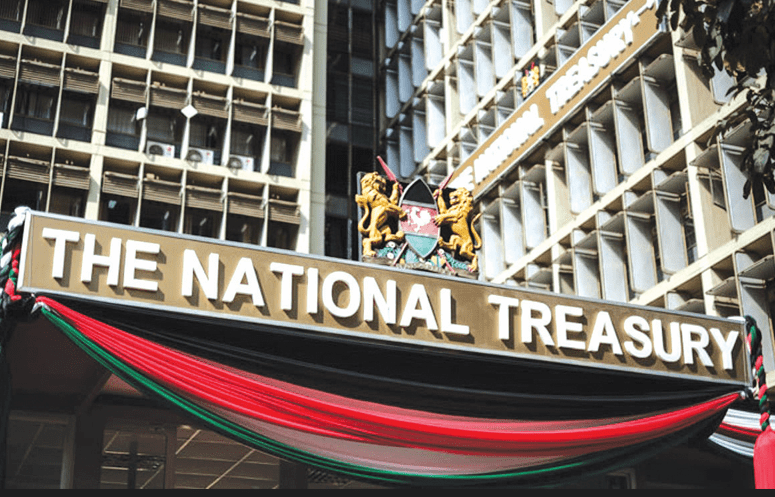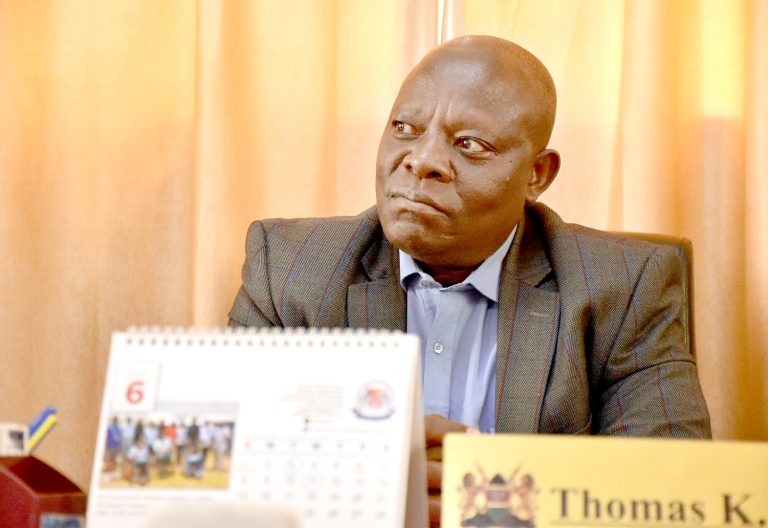On Kenya Meat Commission, let the law serve the people, not the other way round

By MYLES LEO
On Monday, President Uhuru Kenyatta officially commissioned the refurbished Kenya Meat Commission (KMC), pun intended, factory in Athi River, Machakos County. This move, which would ordinarily be hailed as one in the right direction seeing that it is one of the few national endeavours that seem to indicate resumption to vibrancy in the economy in light of the darkness that has been visited onto the country by the covid-19 pandemic, has, however, elicited a totally different debate.
Coming as it did on the day a new Chief Justice and President of the Supreme Court was taking over the instruments of power, reports and analyses of the President’s event instead turned the tables and focused on what was termed “defiance and disregard for court orders” by the Executive. There is a history here that we need to revisit as I make my point.
On September 7, this year President Uhuru Kenyatta issued an Executive Order transferring the Kenya Meat Commission (KMC) from the Ministry of Agriculture to the Ministry of Defence. At that point, KMC was sinking under debts, including livestock farmers and other suppliers, to the tune of over a billion shillings. The government-owned meat processor was operating below capacity and was grappling with an unreliable supply of raw material and an ageing plant, which had slowed down its operations. The Athi River-based plant was slaughtering 200 cattle per week, despite having the capacity to process the same number of animals per day.
Some months later, Interior Cabinet Secretary Dr Fred Matiang’i would announce that the Meat Commission had cleared the bulk of debts it owed livestock farmers and other suppliers. Just a couple of months after take-over by the Kenya Defence Forces, the loss-making firm had also increased the number of livestock supplied by nearly 30 percent and other suppliers motivated by faster payments for deliveries. The farmers had received Sh250 million in debt repayment while other general suppliers had gotten Sh150 million. “The other managerial issues in running the KMC facilities are now being effectively addressed,” Dr Matiang’I said at that time.
It was all smiles and a palpable air of hope.
Then the Law Society of Kenya went to court seeking to reverse the KMC transfer and all the good that was coming with it. In their petition, LSK argued that “ the Executive order has major effects since it would transfer associated budgets for the next schedule’s supplementary budget to the Ministry of Defence. It is also perceived that the order contains portfolio responsibilities and changes made in the structure of KMC and that of the Ministry of Defence.” Nothing to do with the farmer, the employee nor the economy. Nothing!
And on February 15 this year, Justice Anthony Mrima seemed to agree with LSK and ordered the Ministry of Agriculture and the Attorney-General to regularise the KMC transfer to the military have been given 90 days, citing violation of Article 10 of the Constitution for lack of public participation.
It is this legal hitch of “regularizing” the transfer that is generating all the heat and impeding the public to see the light exuded by the presidential act that actually makes the lives of the citizens better.
That there is wanton sleaze and inefficiency in the public sector of this country is common knowledge. It is so deep rooted that changing it from within is a near impossible venture. I guess it is on this realisation that the President has lately been attempting to salvage what is redeemable from the inept, corrupt and utterly obstinate civil service in the various ministries. One area that seems to provide hope due perceived, and evidently, real dedication and discipline is our military.
And the President has been shifting some otherwise civilian responsibilities to the discipline forces with very impressive results.
Sample this:
Tired with confusion and impunity in Nairobi County and city, President Uhuru Kenyatta formed the Nairobi Metropolitan Service (NMS) and appointed Maj Gen Mohammed Badi to head it on March 18 2020. At that time the city had sunk in garbage, the roads and streets were a mess and public transport was chaotic. Traffic snarl-ups were the second name of Nairobi and water in the slums was retailing at a global high.
Today, the picture is different. And positively so!
In 2014, the President nominated Major General Philip Wachira Kameru as the Director General of the National Intelligence Service (NIS) and made the President’s chief adviser on national security sitting in the National Security Advisory Committee and the National Security Council. At that time, the country was experiencing one of the highest levels of insecurity with terrorists having a field day and striking at will.
Today, the country is one of the most secure in the region, thousands of terrorists are dead and terror groups are falling apart!
There are more examples of what critics refer to as “militarization” of the civil service but all point to a higher level of efficiency and commitment to duty that seems to be in the DNA of our military.
At the KMC, there is just too much at stake to even consider a delay in the transfer process. Other than the fact that farmers who had not been paid for supplies made in over four years now have their dues in their pockets, that they will now be receiving full payment for cattle supplied within 72 hours is a heaven they wouldn’t comprehend halting for a minute.
In the case of the Meat Commission, let the law be made to serve the people. The benefits of the DoD take-over far outweigh the risks of the legal technicalities.
Mr Leo is a public policy analyst.












